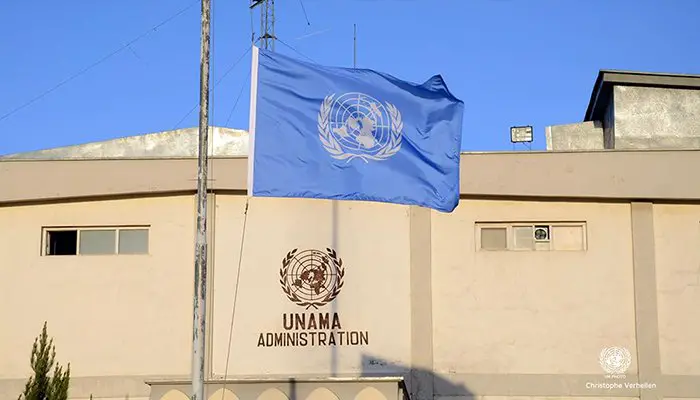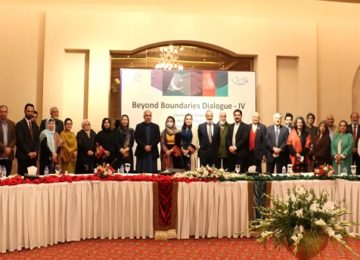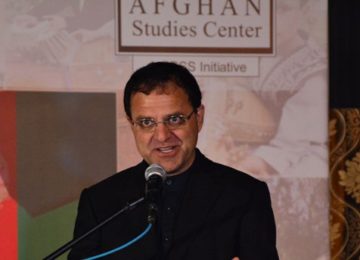UNAMA’s new report criticizes the Taliban’s Virtue Ministry for policies that violate human rights and restrict citizens’ freedoms.
The United Nations Assistance Mission in Afghanistan (UNAMA) has released a new report criticizing the Ministry for the Promotion of Virtue and Prevention of Vice under the Taliban. The report highlights that the ministry’s policies violate human rights and fundamental freedoms of citizens of Afghanistan.
Published on Thursday, April 10, the report is based on six months of observations and continuous monitoring. It specifically criticizes the implementation and enforcement methods of the ministry, describing them as oppressive and lacking accountability.
UNAMA notes that the law enacted by the Taliban in August 2024 treats Afghanistan’s citizens as “subjects under control” rather than recognizing them as rights-holding individuals. The law, according to the report, fails to respect civil liberties and imposes restrictive measures on everyday life.
The report emphasizes that women and girls have been disproportionately affected by these restrictions, which have worsened the humanitarian and economic crisis in the country. With around 3,300 officers deployed across 28 provinces, the ministry has been accused of arbitrary arrests, confiscation of property, and unregulated punishments.
UNAMA further references World Bank data, warning that restrictions on women’s education and employment may cost Afghanistan’s economy an estimated $1.4 billion annually. The ministry’s policies, including bans on travel, dress codes, and women’s public participation, are contributing to poverty and food insecurity.
One of the most striking elements of the report is the documentation of 1,033 cases of arbitrary punishment between August 2021 and March 2024. This includes 205 cases against women and 828 against men. Punishments range from threats and beatings to public floggings and detention.
These practices, the report concludes, have created a climate of fear and intimidation. It also highlights cases of religious interference, such as forced iftar practices in Daikundi province in 2023, which UNAMA describes as violations of religious freedom.
The Taliban authorities have not officially responded to this report. However, in past instances, they have dismissed similar accusations as baseless and shaped by “Western perspectives,” asserting that their laws are grounded in Islamic Sharia and Hanafi jurisprudence.
UNAMA’s report urges the international community and human rights bodies to increase pressure on the Taliban to uphold international human rights obligations. It calls for transparent mechanisms of accountability and the restoration of women’s rights in public, educational, and professional life.
In light of the deepening humanitarian and rights crisis, the report serves as a crucial reminder of the urgent need for global attention and advocacy. Without meaningful reform and oversight, millions of Afghans—especially women and girls—will continue to suffer under an unchecked regime.
SOURCE : KHAAMA PRESS







